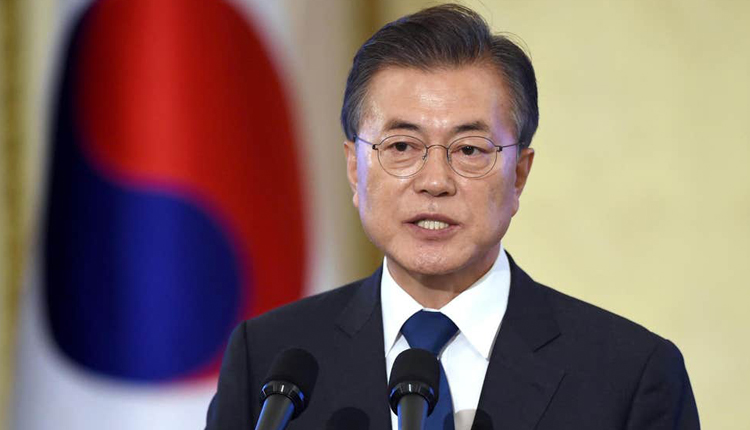South Korea’s President Moon Jae-in has urged Japan to withdraw export controls on high-tech materials bound for South Korea as a row over forced wartime labor threatened to disrupt global supplies of South Korean memory chips and smartphones.
In his first public remarks on Japan’s restriction on exports to South Korea, Moon said on Monday a “vicious cycle” of action by the uneasy neighbors, both important U.S. allies, was something both of them should avoid.
South Korea’s tech giant Samsung Electronics Co (005930.KS) and SK Hynix Inc (000660.KS) – the world’s top memory chipmakers, and suppliers to Apple (AAPL.O) and China’s Huawei Technologies [HWT.UL] – could face delays if the Japanese measures, which took effect on Thursday, drag on.
Japan tightened restrictions on the export of the high-tech materials to South Korea in connection with a dispute over compensation for forced wartime labor.
The row between the U.S. allies flared last October when South Korea’s Supreme Court ruled that Japan’s Nippon Steel (5401.T) must compensate South Koreans for forced labor during World War Two.
Japan maintains that the issue of forced labor was fully settled in 1965 when the two countries restored diplomatic ties, and has denounced the South Korean court ruling as “unthinkable”.
Moon said South Korea could not rule out countermeasures if the Japanese action inflicted damage on South Korean companies, although he said he did not want see that.
“The vicious cycle of actions and counteractions is not desirable at all for both countries,” Moon told a meeting with his senior aides.
South Korea is planning to file a complaint with the World Trade Organization over Japan’s restrictions.
Moon said he would prioritize development of home-grown high-tech equipment and materials and South Korea would improve the trade deficit with Japan in the long term.
South Korea has been running chronic trade deficits with Japan as South Korean industries rely on Japan for key inputs and equipment.
The dispute over compensation for forced labor is the latest surge of animosity in a relationship long over-shadowed by South Korean resentment of Japan’s 1910-1945 occupation of the Korean peninsula.
Source: Reuters


